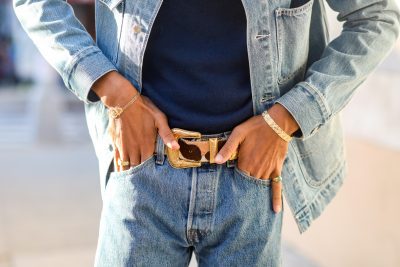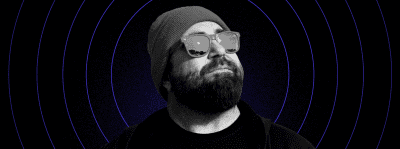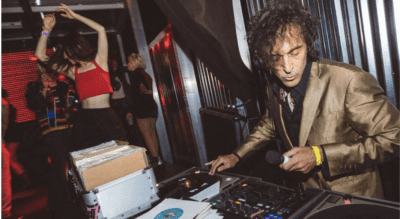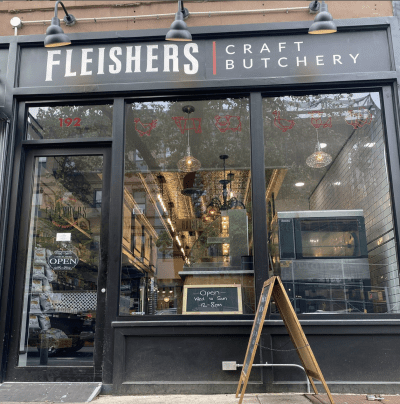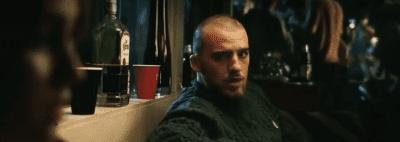Zombie Juice (photos by Erick Sasso)
Zombie Juice wants you to get in your feelings
The Flatbush Zombies member confronts his trauma and embraces fatherhood on his solo debut ’Love Without Conditions’
Antonio Lewis, better known as Zombie Juice, is one third of the hip-hop trio Flatbush Zombies. Although if you were to ask him, he might say he identifies more as a camel: “I carry so much stuff on my back and I need to replenish and drink some water ‘cause it’s hot out here in the desert,” he says.
Growing up in Brooklyn, Lewis faced trauma that he often wasn’t able to process until he became a father himself. He never felt he was capable of being unconditionally loved, he says, nor loving someone unconditionally. Now that he has a child, that’s all changed in ways he couldn’t have foreseen.
Flatbush Zombies have been a critically acclaimed hip-hop and rap trio since 2010, known for their psychedelic sound on hits like “Bounce.” But Zombie Juice, with his solo debut “Love Without Conditions,” released on April 23, has shifted to a more self-conscious, alternative sound and slowed tempo.
The plan was always for Flatbush Zombies members to produce their own solo work, with the idea being the trio would always regroup stronger and more versatile as a creative unit. Brooklyn Magazine sat down with Lewis to discuss some of his most personal and reflective work yet, exploring the past and present of his relationships and the evolution of how he expresses his emotions.
This interview has been edited for concision and clarity.
How has the feedback been so for “Love Without Conditions?”
The feedback so far has been on-point and what I wanted. My only concerns were to make a project 100 percent me, no matter what the time or the mood was. My goal was not to be heroic, but to be human – the opposite of what goes down on social media and this fast-paced world where everyone wants to be the one and puts on fronts to make it look good. Meanwhile, we are all going through things inside. Grief, mental things, physical health, the list goes on. I’ve been making music for over 10 years and the amount of “faking it for the world” I’ve seen is absurd. There are days I wake up on the wrong side of the bed but it’s about how you get up, make the bed and jump back in it at the end of the night. I can’t count how many people told me this album made them cry or helped them understand me and themselves as humans in this strange society we live in. And that’s honestly all I can ask for. Fame, money and awards look nice in my living room, but the emotional connections to the people will last lifetimes for me; dead or alive.
What was it like making a solo album, compared to collaborating with Flatbush Zombies?
I wrote all of these songs alone in my room. No producers, friends or outside energy. Just my emotions trapped inside four walls.
You confront some childhood hardships here. Tell me how we can hear that throughout the album. On the outro “Mindful,” I touch on certain things a little more such as not having a mom or even having to go on the run and switch states, changing identities and things of that nature. As a kid, I couldn’t really grasp it all so I made sure to sprinkle those things throughout the album. But again, it’s about how you finish and not how you started. We are still pushing [for] healing and greatness everyday. I had my grandma assist me on the track “Mindful.” I didn’t tell her she was being recorded. I always love Kanye West’s outros being long and I saw this one show, I think it was Duncan Trussell, who did a podcast with his mom. It kind of inspired me to just say “Grandma, you better tell me as much as you can right now about my mom and family.” I have hours of that conversation and had to simplify it to two minutes.
You’re also a father now. Did you begin writing this album when you became a father, or was it already in production before that milestone?
“Love Without Conditions” was in production after the milestone, but my kid definitely influenced much of the album. These days I feel so connected to my kid and I’m hella grateful. I’m over here writing raps and he’s over here telling me I better go hard, ‘I’m tryna see you on the Kai Cenat show!’
How differently do you see love now that you’re a father?
Hmm … well how differently do I see love as a father? That’s a funny one since I’m a grown kid, so all it took (and takes) adjusting to. As long as it’s unconditional and from the heart, that’s all that matters. The kid has that, but had to and is still figuring out what that means for romantic relationships.
Has this album helped you become more accepting of expressing your emotions and feelings towards others?
I remember going to my friend Anwar Carrots’ pop-up and he said to me that he always appreciated how vulnerable I’ve been. I’ve known Carrots since at least 2010. I can barely remember things I’ve done or said three years ago, so when he said that it clicked and it reminded me, “Wait, I’ve always been like this. I’m not doing anything wrong by telling my stories; good or bad.” Who are we trying to impress? Everyone else? Screw that. I’m tryna impress myself and build this legacy. If I’m being judged, I’ll have fun with it. I’ll survive being me – a psychedelic emotional ball hitting all of the goals I can until I’m no longer able to.
What about being more communicative with others?
Over the years I’ve gotten way better at communicating and that takes self analysis and also admitting you’re wrong or don’t have all of the answers. It takes practice to be transparent, especially in relationships. Something that means so little to you could be the big communicative tissue that allows another to trust you and be vulnerable, so you just gotta step out of your body sometimes to understand how to communicate with others the way they need.
You have a lot of collaborations on the album. How do you choose who to work with on such an autobiographical album?
I kind of just went with my friends from Erick the Architect to Powers Pleasant to Col3trane and JGrrey. It felt better this way. Sometimes when you hear something, you know it’s for them.
Now that you created a more emotionally expressive album as a solo artist, can you see Flatbush Zombies as a trio creating something similar in the future?
Well, we have a bunch of emotional records like “U&I,” so we never fully stray away from touching on those deep, reflective emotions. I just feel like there’s always a need for balance.
Overall, what do you want listeners to get out of this album?
I want them to enjoy it, hopefully relate to it, replay it over and over and know it’s okay to feel. We don’t have to be emotionless. Let’s process things.
You might also like 

















